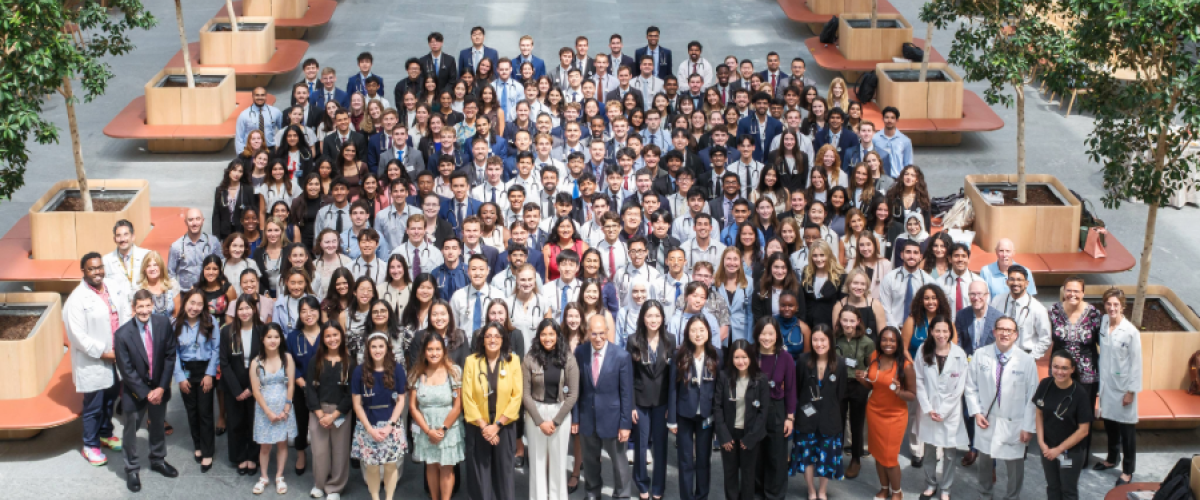Yunmei Wang, assistant professor of medicine, and Philip A. Cola, adjunct assistant professor of medicine and management, won the best overall manuscript at the 21st International Academy of Management and Business Conference held in Montreal, Canada, May 18-20.
Their paper, “Socio-Cultural Factors Influencing Academic-Practitioner Collaboration in Medicine,” emanated from their collaborative efforts as practitioner-scholars in the Doctor of Management program at the Weatherhead School of Management.
Wang studies the scientist and physician collaboration and Cola studies the factors that influence success for physician scientists. They were both interested in the problem that it takes 17 years to translate 14 percent of research findings into the clinical practice of medicine that still only impacts 50 percent of patients.
They postulated that the lack of scientist-physician partnership is a critical reason for this low rate of translational science. Their quantitative study investigated the influence of social factors on an effective partnership between scientists and physicians.
Hypotheses included that both perceived socio-cultural difference and professional language difference between scientists and physicians have negative effects on their partnership outcomes, which include academic and clinical outcomes, and social support and shared visions/goals positively influence the outcomes of this partnership. Finally, they proposed that communication effectiveness and mutuality mediate the effects of these social factors on collaborative outcomes. More than 400 scientists and physicians were surveyed across academic medical centers to test these hypotheses.
The data indicated that:
- Both professional language differences and socio-cultural difference, counter-intuitively, do not have negative, but rather positive effects on scientist physician partnerships directly or indirectly through their positive effects on communication effectiveness and mutuality as well as satisfaction on collaborative process effectiveness;
- As hypothesized, social support and shared vision/goals are positively associated with partnership outcomes; and
- Communication effectiveness, mutuality and satisfaction on collaborative process mediate the effects of perceived socio-cultural difference, professional language difference, social support and shared vision/goals on partnership outcomes.





